#people have quoted the difference
Text
i think that gay sex cats is the new duchamp's fountain
#if youre getting mad at it now you would have been mad about modern art in the 1920s too#this is what people mean when they say that some people are no different than greek statue pfps getting all RETVRN abt art#also pack it up there's better posts on the automation of art and art philosophizing#too much people reblogged this for the quote unquote ethical painting. scram
25K notes
·
View notes
Text
"Deep inside, Wilson believes that if he cares enough, he'll never have to die."
What the fuck were the House writers on
#how am i supposed to live laugh love in these conditions#this quote is attempted murder#i cant live like this#This also puts the scene were Wilson tells House he wishes he was more of an asshole into perspective#“i wish i had been more a selfish jerk” “youd still have cancer” “atleast id feel like i deserved it”#because wilson spent his whole life helping people because some part of him genuinely believed that he would live a very long good life#as long as he was doing good and helping people#but in the end none of it mattered and in his mind he wasted his entire life being overly good when he couldve just lived how he wanted#because in the end it didnt make any difference#brb sobbing#thats why when people act like wilson is the devil for saying that to house i lose 5 years of my life#house md#house#greg house#james wilson#gregory house#hilson#hate crimes md#hatecrimes md#wilson#housemd
643 notes
·
View notes
Text
Bby Legolas who absolute did not pay attention to when they were teaching about the history of the noldor/sindar elves, partially bc he was a silvan thx, and didn’t care much for these other elves who he probably wasn’t gonna interact with a lot anyways, partially bc after the 5th elf to share almost identical names with other elves of great renown, with the difference being, like, 1 letter, he just acknowledged that it wasn’t gonna happen.
Adult legolas, who’s trying really hard to seem like a functional elven being, franticly trying to remember who’s who whenever he’s visiting imlardis and one of the elves start talking about their history/ancestors: i took a calculated risk, but man am i bad at math.
Legolas: *mixing up pretty much the entire finweon line, bar elrond’s immediate family*
Legolas: I absolutely know what i’m talking about, no don’t look in my notebook-
Legolas: *learning that many elves from the first age had up to 3 names each* fuuuuuck, you couldn’t have sticked with 1 name like normal people??? Maybe 2, but 3? C’mon man. At this point it’s bullying.
Sm elf: *calling legolas “thranduilion”*
Legolas, has a last name he shares with his entire family: whomst the fuck
#lord of the rings#lotr#silmarillion#lotr elves#the hobbit#legolas#thranduil#silvans#mirkwood#incorrect tolkien quotes#incorrect hobbit quotes#incorrect lotr quotes#elven naming practices#legolas nopes the fuck out of noldor history#this is a joke guys#legolas becoming increasingly aware of the differences between their people#legolas did not have the patience for history ok
258 notes
·
View notes
Text
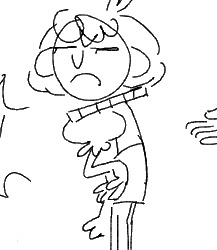
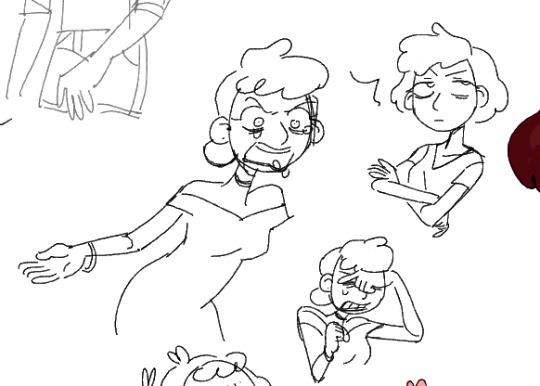
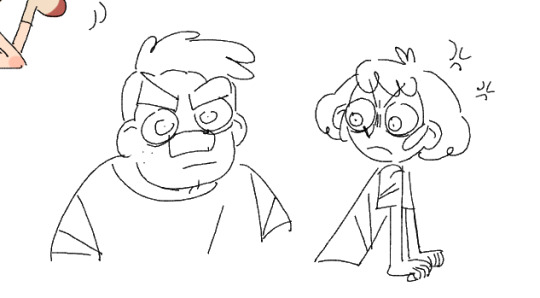
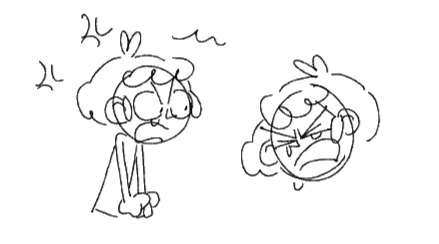
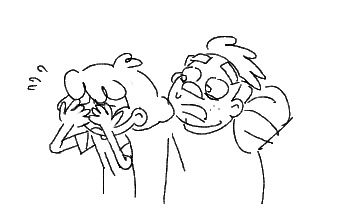


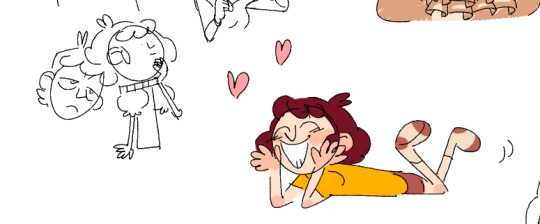
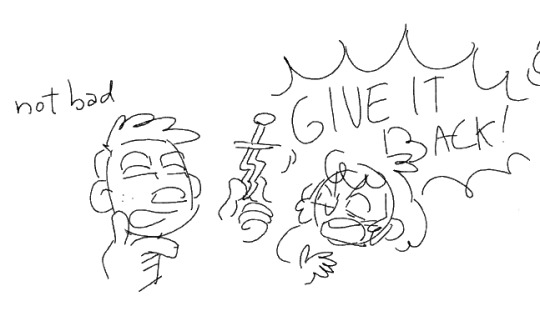
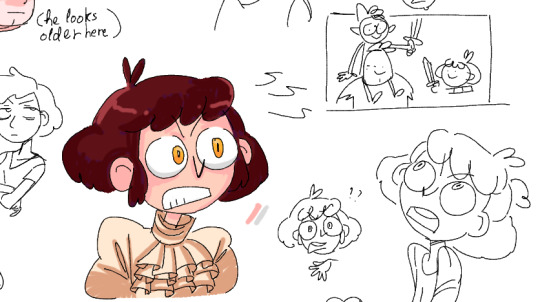
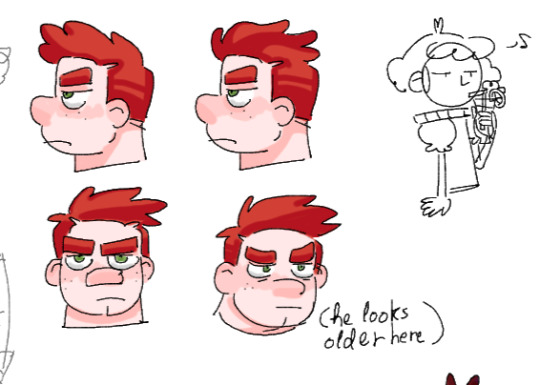
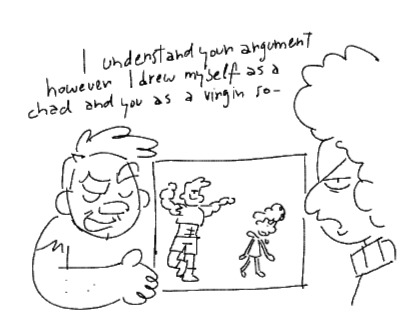
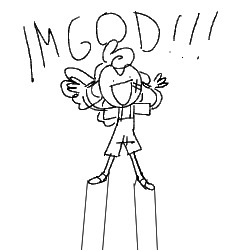
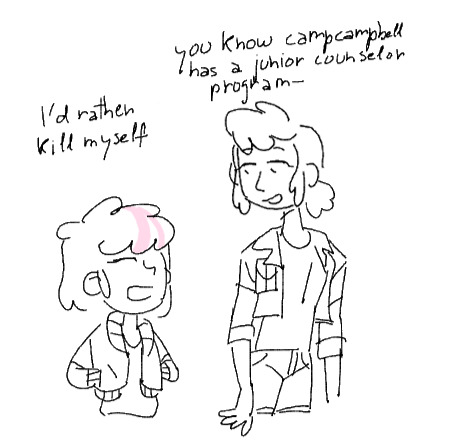
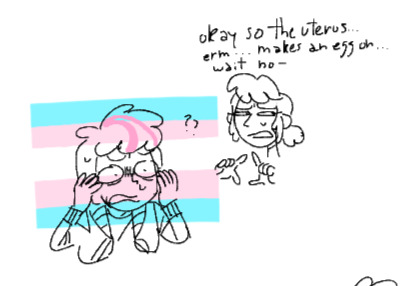
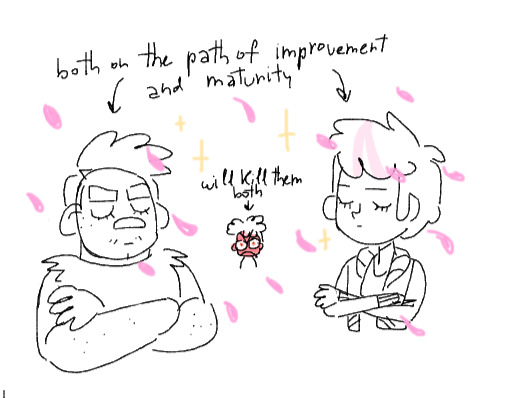
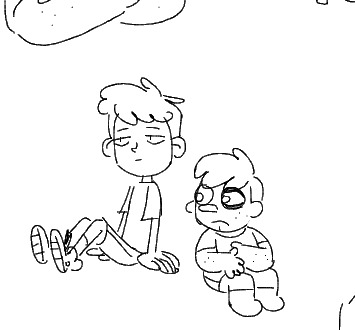
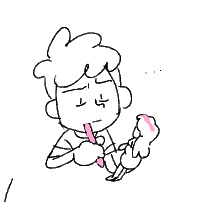
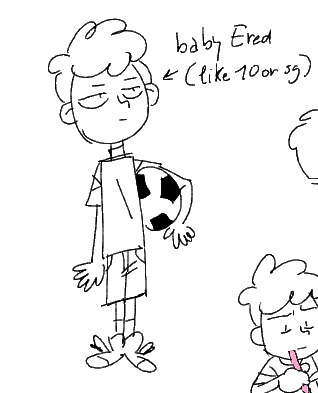
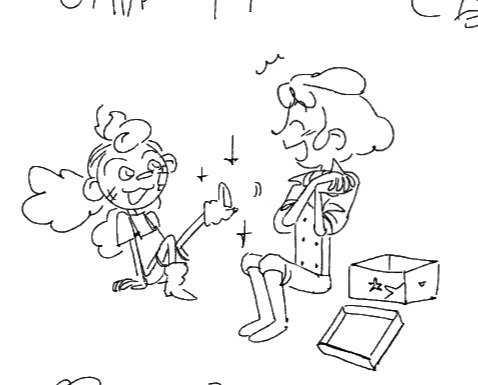
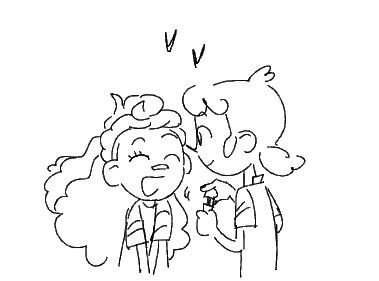

i'm posting these mediocre sketches before school kicks my ass again
#camp camp#camp camp fanart#cc preston#god im so pissed my computer never lasts long enoug for me to finish at least ONE drawing#and i dont even have time to go fix it because of exams#cc nikki#cc nurf#AAND i cant download episodes anymore so now i feel like a huge failure#cc gwen#save me cc episode 3 season 5#cc neil#cc ered#my art#i think preston and nikki would bond over nikki's new found femininity#since they most likely didn't get along very well before because of their differences#nikki could teach him how to fight idk#this episode validated my trans ered headcanon and my camp counselor ered headcanon#tough being right all the time#i really like that ered and nurf are both trying to become better people#i know they wont treat nurf's quote on quote growth seriously but im so happy to see so much focus on ered#i genuinly never thought this would ever happen im over the moon#ered<3333
130 notes
·
View notes
Text
A moment of appreciation for Frodo, who
accepts guardianship of the Ring, no matter what it may do to him
undertakes the journey to Rivendell because he knows that as long as the Ring is in his possession, he is a danger to the Shire and everyone he cares about
believes that he will not return from his journey like Bilbo did
wonders where he will find his courage when he needs it
wishes to not take his friends with him into peril and wants to shoulder the burden alone and prevent his friends from suffering with him
hides the pain he feels from the Witch-king's wound from his friends so that he does not worry them
steps forward to take the Ring to Mordor even though he is filled with dread and does not know the way
plans at Amon Hen to go alone to Mordor so that he does not endanger the fellowship further
perseveres on the journey to Mordor, even though the weight of the Ring increases until he feels as if it is dragging him down
pushes forward even though every step toward Mordor he struggles against the power of Sauron’s will and feels it laying bare everything around him
presses through his despair because he must complete his task
feels the presence of the Ring in his mind at all times during the trek across Mordor
believes he will die before ever reaching Mount Doom but is resolved to continue as long as he can, though he has no hope left that he will succeed
never recovers from the Witch-king's wound and falls ill each anniversary of the night on Weathertop and each anniversary of the Ring's destruction
returns to the Shire but cannot find rest or healing there because he has been too deeply changed by his journey and by the torment and wounds he has suffered
#lotr#frodo baggins#my notes have been a mess the whole week of people saying that sam did everything and he got the job done and he's the real hero#and saying that frodo is useless#so this is the result of having to look at that crap all week#these are all paraphrases of frodo's thoughts and quotes btw#except for the last two which are summaries of several different quotes combined#.txt
922 notes
·
View notes
Photo
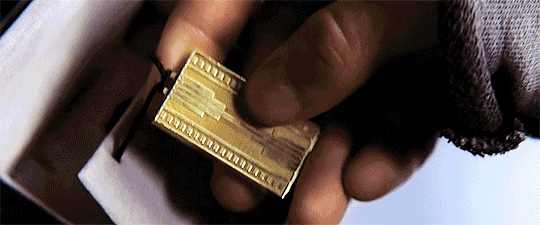
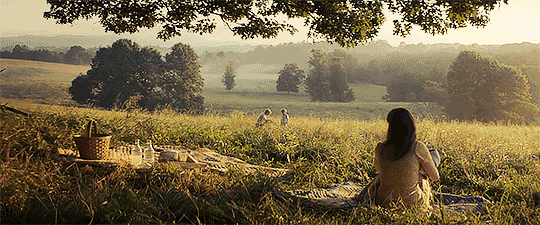
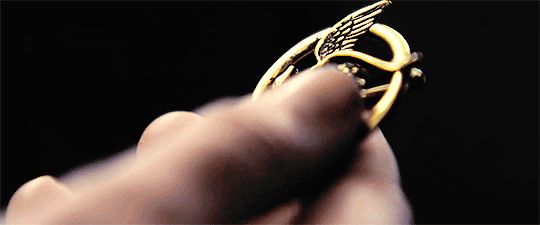
“I had a dream, though,” I say, thinking back. “I was following a mockingjay through the woods. For a long time. It was Rue, really. I mean, when it sang, it had her voice.”
“Where did she take you?” he says, brushing my hair off my forehead.
“I don’t know. We never arrived.” I say. “But I felt happy.”
...
Peeta pulls the chain with the gold disk from around his neck. He holds it in the moonlight so I can clearly see the mockingjay. Then his thumb slides along a catch I didn’t notice before and the disc pops open. It’s not solid, as I had thought, but a locket. And within the locket are photos. […]
“Your family needs you, Katniss,” Peeta says.
My family. My mother. My sister. And my pretend cousin Gale. But Peeta’s intention is clear. That Gale really is my family, or will be one day, if I live. That I’ll marry him. So Peeta’s giving me his life and Gale at the same time. To let me know I shouldn’t ever have doubts about it. Everything. That’s what Peeta wants me to take from him.
...
He puts the chain with the locket around my neck, then rests his hand over the spot where our baby would be. “You’re going to make a great mother, you know,” he says.
...
As I drift off, I try to imagine that world, somewhere in the future, with no Games, no Captiol. A place like the meadow in the song I sang to Rue as she died. Where Peeta’s child could be safe.
....
#the hunger games#everlark#eablog gifs#eablog quotes#i always wondered why they didn't make peetas locket have the mockingay like it does in the book#and the design doesnt have any real significance which is frustrating#it vaguely looks like wheat or i thought for a while it was meant to look like the stained glass in the victors village houses#but it doesnt#putting the mockingjay on it does mean something symbolically though#like hes trying to give her the future he thinks she wants and that the rebellion might bring#but ends up also giving her the pearl which she actually cherishes#kind of by accident just because hes thoughtful which is part of why she loves him#its such a good parallel and would have been an easy visual to carry through so weird that they just didnt? for no real apparent reason?#ALSO HE WANTED TO MATCH HER WHICH IS JUST#theyre a teammm#AND the mockingjay means something different for katniss than everyone thinks#and peeta is one of the only people that seems to understand that?#for her it symbolizes family ties not the rebellion#AND HE PUTS IT ON A LOCKET WITH HER FAMILY IN IT#but she really wants to have a family with him not gale so the mockingjay still does symbolize the future and their family#so him giving it to her is significant but not in the way he thinks#AND its like hes reclaiming the mockingjay for her again in some small way when everyone is taking it for themselves and using it#i actually cannot with them
672 notes
·
View notes
Text
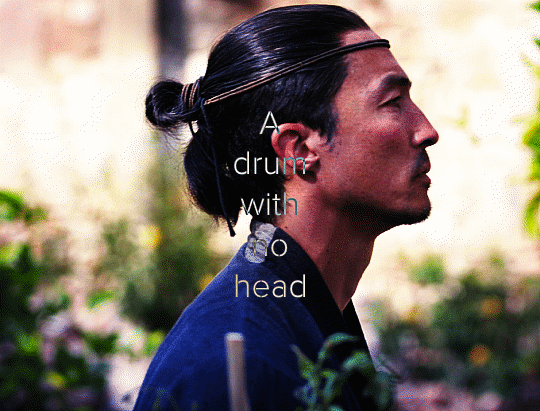
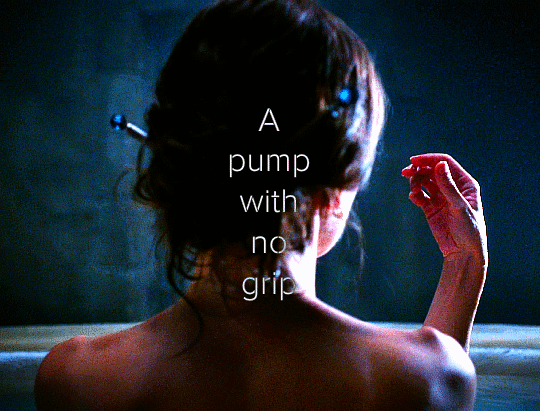
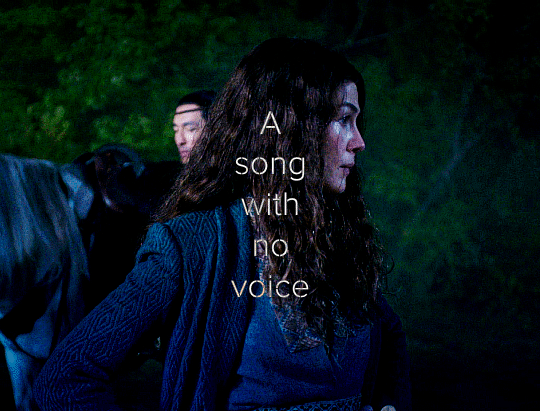


Anasai of Ryddingwood.
Each of her poems was written as an elegy. This was for her father. She left instructions; it can be read, but should not be spoken out loud, except when it was right to do so. She did not explain when it would be right to do so.
#The wheel of time#wot edit#wot on prime#moiraine damodred#lan mandragoran#wot book spoilers#minor spoiler though#the poem in itself tells nothing#the poet was literally one of the clues given by the official account to unlock a promo picture#married to death#mine: wot#mygifs#still it's a very interesting poem in this context and I've been wanting to use it for ages#I remember seeing the quotes from Rosamund Pike about the loss of the OP being like the loss of a child#and it's true that their arc hits a lot of beats from such stories with the people involved being having nothing in common anymore#the bond was a bridge between them#now it's an absence between them#they have different ways of dealing with that loss and those ways happen to break them even further apart#Moiraine wants him to move on without her#Lan wants her to talk to him#they aren't compatible#the arc gets an interesting conclusion in the sense that their conflict doesn't so much resolve as it is stitched#Moiraine does not talk to Lan any more than she does to Siuan#and Lan very much cannot move on from her#but Moiraine accepts that he will stick with her whatever happens#and Lan accepts that Moiraine will not tell him everything#their bond is restored but the fractures remain#they don't change but they accept they won't always be able to understand each other#I do like that the show made a point this was a choice to renew their vows too#this arc was a platonic feast I tell you
201 notes
·
View notes
Text
sometimes when I'm alone, i take the pearl from where it lives in my pocket and try to remember the boy with the bread, the strong arms that warded off nightmares on the train, the kisses in the arena. to make myself put a name on the thing i've lost. but what's the use. It's gone. he's gone. whatever existed between us it's gone.
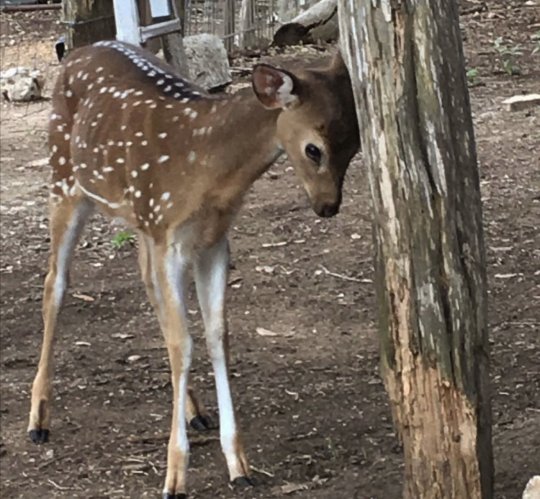
#yes people are different#PEOPLE ARE DIFFERENT#I KNOW#but i can't not be confused when people say that the romance in thg doesn't really matter or not the point when a quote like this one exists#it's not that it doesn't matter but it doesn't have time to matter#it is in the background in a way but not because it's small or not the point but because it's not allowed to be the center of attention#how do you read this and not fall apart#literally how#thg#everlark
127 notes
·
View notes
Text
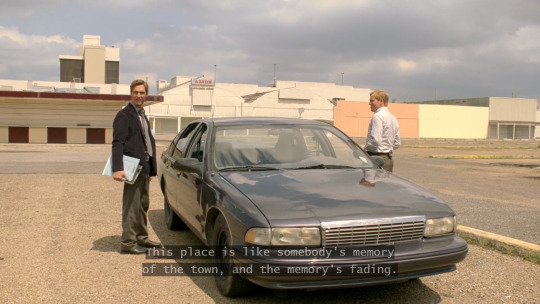

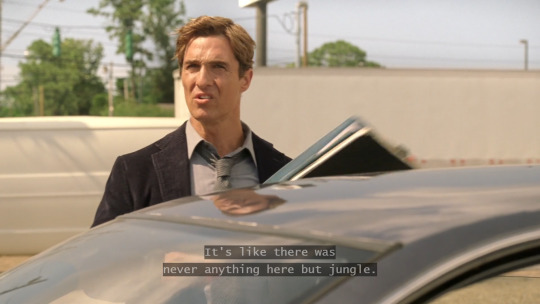
true detective: the long bright dark / disco elysium: jamais vu (derealization)
#in my true elysium slash disco detective universe forever#i have talked about this already but its funny that this quote was marty's breaking point. who has not felt about their hometown like this?#rust does not know this city well however which makes the feeling different but somehow still universal to the experience of growing up#in places that have to change to survive (be it bc of its economy or bc its simply outdated)#but the town in TT s1 appears to be decaying. at least to rust#imo one of the best shots and most defining of the show is that of the church abandoned and left to rot in nature with the factories#in the background. past and progress shown in one shot you know#but with the eps passing i would say that it is the people and their humanity that is decaying instead of the town#after all the town seems quite alright in terms of infrastructures#but the description of it as a jungle really does fit very well#both with the landscapes shown and the animals (men) lurking where you least expect them#true detective#rust cohle#marty hart#mine
99 notes
·
View notes
Text
“It is better to know one book intimately than a hundred superficially” (Tartt, 31).
I am absolutely fascinated by the fame and reverence this quote from the Secret History has achieved. It terrifies me. Let me explain.
Who’s line is this? Oh, yes. Professor Julian Morrow. Julian, in his lecture on how death begets beauty, on how Dionysian madness lends immortality. Julian, who isolates the greek class, buries them in the glories of the past and in their privilege, and submerges them beneath illusions until his students can’t tell right from wrong and real from imagined.
These words are satire. This is NOT a lesson any teacher should impart, and should NOT be beloved and relatable. In one sentence, Donna Tartt summarizes the entire cautionary tale of the novel: the selective, warped, and obsessive view on life the greek class held, born from entitlement and cultivated by Julian, led the students to tear themselves to pieces.
What’s more, the way people quote it all the time makes this line all the more haunting. Widespread parroting of Julian’s teachings only reinforces Donna’s themes: human minds are easily manipulatable, it can be hard to think critically about what you are taught and what you read, and that the easy, self-assured conviction belonging to the reader that, “I, personally, would have behaved differently than Henry, Richard, Francis, Camilla, Charles, and Bunny” is nothing but another illusion.
#“rip to the greek class but I’m different” no you’re not#it’s so funny to me how famous this specific quote is bc people love it for one of three reasons (all equally comical):#A. they have not read the novel and thought the words were pretty (so true but honestly still concerning)#B. they read the novel but took julian’s words at face value and think him brilliant#(this category of people would end up helping henry push bunny into a ravine 100%)#or C. they read the novel and understand well the satirical nature of this quote.#despite this knowledge the act of deeply obsessing over narrow ideas is too tempting to not do it anyways (calling myself out)#congrats! by reading this you now belong to category C#henry winter#richard papen#francis abernathy#charles macaulay#camilla macaulay#bunny corcoran#julian morrow#the secret history#tsh#donna tartt
326 notes
·
View notes
Text
les mis enjoyers i have a question okay
#i have a lot of opinions about this btw#namely that the ranking of which ones are the best goes:#1985 london cast recording#1991 paris cast recording#1980 recording (disco enjolras)#and then everything else is irrelevant#and it always catches me out when people quote things with different lyrics#like drink with me#because fr i'm exclusively used to the original english lyrics#les miserables
290 notes
·
View notes
Text
Fox: I really got to go.
Wolffe: because QOA was in a bike accident.
Fox: Yeah.
Wolffe: Tell your friend, QOA, she’s got a funny name. And she should learn to ride a bicycle.
Fox: I would but she’s not my friend, she’s my wife; and that’s not her name it’s her title.
Wolffe: QOA?
Fox: Queen of Alderaan.
#star wars incorrect quotes#inncorrect quotes#commander fox#bail/breha/fox#commander wolffe#bail organa#breha organa#inspired by the west wing#i have started to write the au now#But this text is different in my au#With different people
153 notes
·
View notes
Text

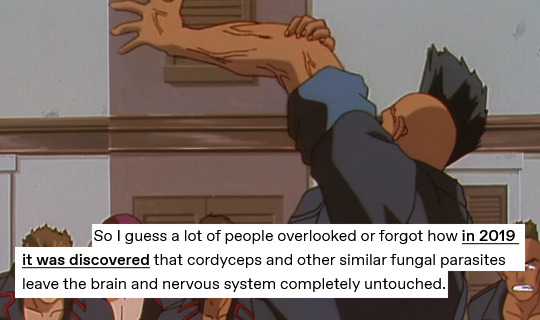
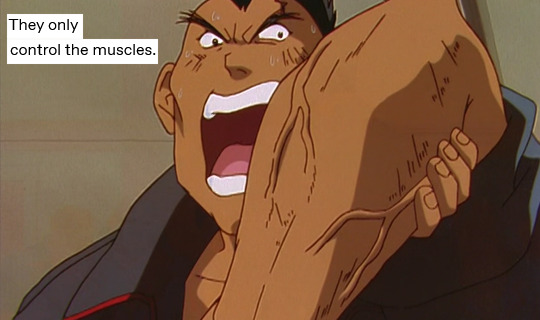
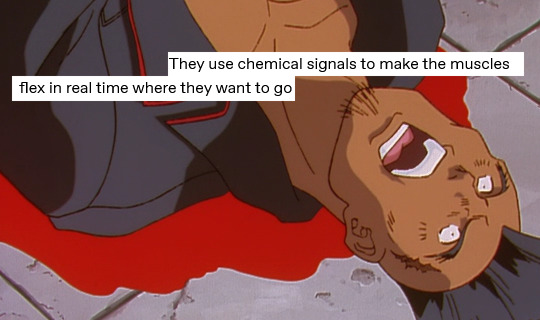
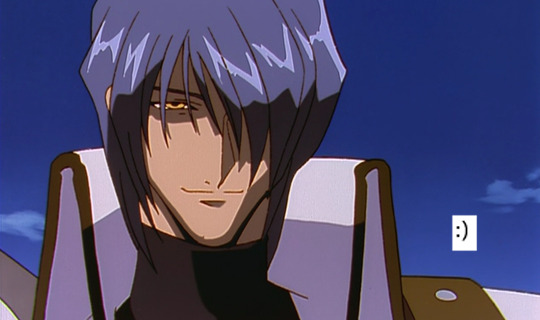
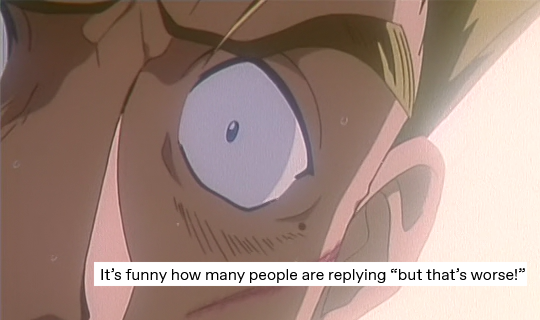
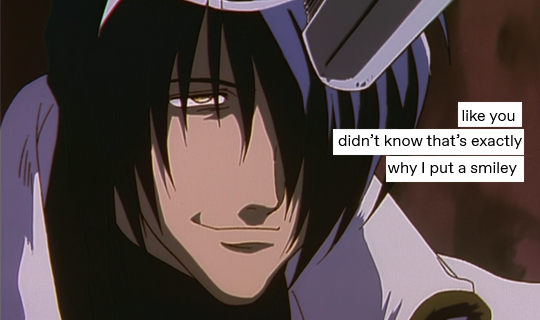
Legato shares some distressing biology facts :)
(text from this post by tumblr user bogleech)
#trigun#legato bluesummers#vash the stampede#trigun 98#inaccurate quotes#shitposts#doeart#cordyceps#I just think Legato's power is Neat :)#I have had AT LEAST two different people send me this text post with the express purpose of making me go LEGATO so I had to do this lol
326 notes
·
View notes
Text

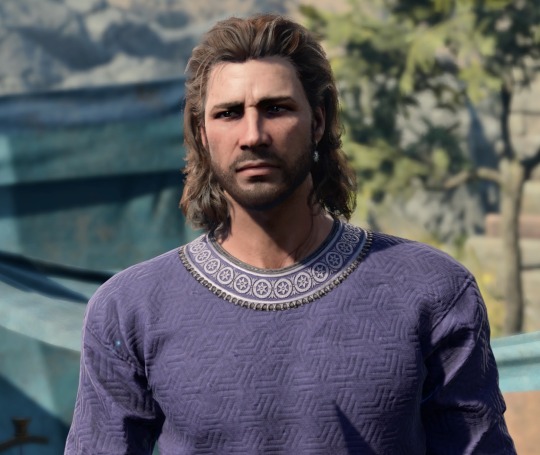
SOME ILLEGIBLE RAMBLES AND REFLECTIONS: ON GALE AND MYSTRA
I've been on the fence about whether to make this analysis specifically, but after seeing a few other discussions floating around figure it's worth offering another viewpoint in case it resonates.
These analyses in particular are very subjective and offer an interpretive option more than anything. I might allude to discussions I've seen elsewhere that I have different views from, but different views don't automatically mean personal dislike for me. Life would be boring if we all thought the same way, you know?
Anyway. Hugeass post ahead, proceed at your own risk lol.
One of the arguments I've seen cropping up recently is the idea that romance between gods and mortals is inherently unequal, abusive, and problematic.
I am very much of the mind that Mystra abused Gale. The developers at Larian have stated that every companion in Baldur's Gate 3 is a victim of abuse in some capacity. Some of my favorite romances over the years have been between gods and mortals. Mystra/Gale is not one of those.
I think blaming the divine/mortal dynamic for any abuse misses the point. Moreover, it absolves Mystra of a huge amount of personal responsibility in the abuse she committed. I think it makes the abuse focus on what she is rather than who she is, how she looks at others, and how she treats others.
I reflected on the divine/mortal pairings I've enjoyed compared to the dynamic between Gale and Mystra. In every divine/mortal romance I've loved, the god found wonder and saw a kind of power they lack in their mortal partner. This power stems directly from their mortality. There are experiences and perspectives specific to being mortal that are invaluable. The god doesn't relate to those experiences and perspectives the same way. The god always needs not only humility but equal respect for their mortal partner in some capacity. Additionally, the god acknowledges that being divine does not equate to omniscience. This is not a god according to the monotheistic definition. It's closer to an immortal being who excels in a very specific area and has certain responsibilities weighing on them. The god sees the forest but may no longer see trees, while the mortal sees trees but may not see the forest. There is value in what is ephemeral and fragile, just as there is value in what is permanent. The god and mortal need to bring balance to one another in the sense that the god helps the mortal find comfort in a bigger picture while the mortal reminds the god what it feels like to be small, vulnerable, and intimately connected to the world/other lives.
A healthy divine/mortal romance requires recognition of multiple forms of strength, intelligence, and value. That very, very much is not what Gale and Mystra had.
Another layer to the 'divine/mortal romance is always problematic' argument ties to questions of power imbalance. I would argue that even among human beings--power imbalance always exists. Human beings are not identical or interchangeable with one another. One partner might be brilliant at math and runs finances where the other partner would be lost. The other partner might be brilliant at people and can navigate social situations the mathematician would feel helpless in. One partner may be physically larger or stronger than another. The other partner has the full weight of social/legal support in most conflicts. And this isn't touching on issues relating to mental health, physical health, economic stability, societal issues, etc.
People are multifaceted. None of us excel at all things, find power in all things, or suffer all things. We each have our own pains and triumphs. We each have the ability to hurt each other if we want to. If we wanted to avoid any power imbalance in favor of 1:1 equality, the only answer we'd have would be to literally romance ourselves . And that's 1) narcissism 2) lonely 3) sad. Just ask Raphael.
But unhealthy power imbalances must exist, right? And there is a horrible power imbalance between Gale and Mystra. I would just argue it has more to do with them personally than because of Mystra being a goddess. I'd argue that we should be looking at Gale and Mystra not as mortal and god or man and woman, but as people above all else with their own experiences/motives driving choices throughout the relationship. Examine the ways they look at and treat each other versus themselves. If Mystra was the mortal and Gale was the god, if Mystra was a man and Gale was a woman, I would not change my stance regarding where abuse was committed. Imo people get too caught up trying to make sweeping generalizations instead of focusing on the individuals and how they specifically interact.
This in-mind, what are some examples of unhealthy power imbalance as I define it?
A character is physically and/or mentally incapable of participating with proper awareness of the situation, as a partner with equal respect and sway within the relationship.
A character is dependent upon the prospective partner for survival and cannot refuse them without fear of retribution or withholding necessities to survival.
A character is being systematically isolated and made dependent on their partner for all socialization and self-worth.
And so on. Hopefully you get the gist. What I do want to draw attention to though is that these examples offer room to include a variety of circumstances or dynamics within their umbrella. Ex. An underage character with an adult would easily qualify for the first criteria, but an extremely, non-functioningly drunk character would also count.
So lets have a look at Gale and Mystra's situation in particular again.
Gale has, by his own admission, been involved with the Weave for as long as he can remember. He sees Mystra as synonymous with the Weave, and with magic. These are things he explicitly states within the game. Gale also has notable reactions to say, saving Arabella from being killed over the idol of Silvanus or Mirkon from harpies. With Arabella especially, the idea of being treated as unforgivable or deserving death for a youthful mistake is something he talks about as if he has some experience with it. And while this is a video game with limited character models, I'm going to estimate that the tiefling kids are probably somewhere between nine and thirteen.
We know Gale has been stuck largely alone in his tower with the orb for a year or so. The orb specifically is something that happened when he was an adult, but the way he talks about Arabella with implicit personal identification of facing older authority figures as a young person who didn't know better... I don't think this is the orb alone troubling him. Minsc also has a dialogue option where he talks about how in Rashemen, boys with an affinity for the Weave were hidden away and he suspects it was to keep them from being preyed on by Mystra. Not men, boys.
I've seen people try to argue that Mystra would have been indisposed/dead and unable to take advantage of Gale when he was a kid due to the broader Forgotten Realms timeline. I'm inclined to say in this instance, with all evidence in the narrative pointing to a particular arc and theme for Gale and Mystra's relationship, it's more likely that the timeline was something Larian chose to fudge in the interest of storytelling opportunities. The alternative would be that none of those dialogue exchanges meant anything. The narrative is weakened if those moments are made meaningless, and the characters become flatter and less credible without them too. If it comes between trivia and the emotional core of a story, I'd argue the core wins.
Gale claims to have slept with other people before Mystra, but that a romanced character is the first person he's slept with after her. I personally suspect it wasn't a lot of prior experience, and he was pretty young when his romance with Mystra began. Additionally, while it's pure conjecture on my part--given how Gale reacts to the tiefling kids it would make sense to me if Mystra started grooming him when he was between nine and thirteen years old.
Other people have shared analysis pointing to evidence that Gale unknowingly dual-classed and was a storm sorcerer originally, but was told he was purely a wizard and then had all of his sorcerous abilities eaten by the orb without ever knowing they existed. I do think it makes sense for Mystra to influence Gale as a potentially very powerful sorcerer this way to 1) get him to self-limit through wizard spells so he's easier to predict and control 2) be completely dependent on and devoted to her, starting as early as possible.
(For the curious, sorcerer Gale theory is here and here. Very well-done imo!)
In any case, Mystra absolutely has personal motive to do what she did, that has nothing to do with Gale personally. That it turned into grooming for a sexual relationship isn't a huge leap in light of her apparent mindset either.
But lets take a moment to review that.
This is a really good recap setting up Mystra's situation. Karsus too, by the by. This second video here helps explain Mystra's own situation.
My understanding is like this:
Mystryl was the original goddess of magic. Mystryl was a born-goddess rather than an ascended mortal goddess, which is important to note because both exist in the Forgotten Realms. Mystryl was neutral alignment. The Weave, magic, and those casting magic all tied into her divine portfolio. Divine portfolios reflect deities' jurisdictions and callings, which empowers them through use in the world as well as mortal worship. With all this in-mind, naturally it benefited Mystryl to encourage experimentation, devotion, and arcane ambition. The more spellcasters pushed the limits of magic, the more powerful Mystryl became too. This was when the Empire of Netheril came about, with its floating cities and its magocracies. Worth noting, eleventh level spells were being used at this point in time.
Cue a bunch of aberrations showing up, called phaerimm. Cosmic horror monstrosities that sort of looked like if you combined grubs and lampreys then made them way too big. On the one hand they were ridiculously powerful natural spellcasters themselves. On the other, they could straight up detect, deflect, and eat magic at will. Incidentally they were also extremely hostile to other life forms. So them existing at the same time as Netheril caused some massive problems. The wizard empire was at war, struggling, and panicking.
Karsus was a prodigy and the one most people were turning to for protection at the time. Karsus decided the best way to solve the problem was to become a god himself using the first and only twelfth level spell (of his own design) then get rid of the phaerimm that way. The spell specifically required the caster to replace a god of their choice.
Karsus, being a wizard, thought Mystryl was the strongest divine force of all time and chose her.
The first video explained very well, but it basically sounds like as a born-goddess--maintaining the Weave was essentially an autonomic process for Mystryl. Basically required as much thought as beating your own heart. It wasn't like that for Karsus. Karsus might have been the best wizard in the sense that someone might be the best marathon runner of all time, but if you take that marathon runner and then tell them they have to pump their heart manually from now on they're not just going to lose any future races they attempt--they might just die on the spot.
Which is kind of what happened to Karsus. Karsus became a god of ambition along with magic, then lost his divinity to become a Great Old One instead. These days he's a stone stained in the gore of his dead people who speaks in fountains of blood.
(One of the reasons I'm not enabling Gale in his quest to become god of magic, by-the-by.)
Mystryl died because of Karsus's spell. Mystryl probably hadn't considered mortals, let alone the wizards who gave her so much power as a goddess, a threat to her personally before. An incarnation of Mystra (not Gale's Mystra) was born from the ashes of Mystryl to become the new goddess of magic.
One of the first things Mystra does after basically reincarnating from Mystryl is ban mortals from using magic at level ten or higher. Mystra is now aware that mortals can challenge the gods and straight up kill her personally. She still needs casters using magic at high level to empower herself as a goddess, but it's a double-edged sword that can absolutely kill her.
And to make matters worse... this Mystra also gets killed later. The Mystra we have now was a mortal woman (Midnight) who kept Mystra's name to avoid confusing worshippers, who'd been chosen by Mystra previously and ascended into that role. Midnight-Mystra, from the sound of it, also got killed for a bit and had to get saved by Elminster.
Like I said before, I do think there were some timeline blips going on for Mystra with Baldur's Gate 3. As long as she's died and reincarnated twice, her psychological state is cemented. How long it took her to come back and whether there were even more deaths than that is less important. I'd argue the key ideas we're supposed to take away about Mystra from this are that she is a goddess who 1) at this point is an ascended mortal who may have certain inherited memories or experiences from born-deities 2) is hyper aware that mortals can kill her 3) has been killed and reborn multiple times, not just by mortals but the very wizards she draws power from.
This is absolutely a shitty situation. It makes sense Mystra has complexes around it. It makes sense Midnight-Mystra would feel especially afraid when it comes to wizards seeing as she herself is a former mortal, so her position likely feels even more tenuous. The way she interacts with wizards and relates to her own position as a goddess is not as someone secure in her own power, but someone who sees anyone coming close to her level as a direct threat to her life. She needs casters to be strong to fuel her portfolio, but if they're too strong they can challenge her. So she is using whatever tools at her disposal to keep them beneath her while maintaining her own strength. It's also worth remembering that Mystra has no pretense of being good-alignment. Her motive in confronting the Netherbrain wasn't to protect Toril from mindflayers, but to protect herself personally from the Crown of Karsus and protect the Weave from the Karsic Weave. If magic as a force is in danger (as per the Karsic Weave) she might try to do something, but what befalls mortals is irrelevant to her. I'd argue she's 1000% acting out of self-interest for Baldur's Gate 3. And again--it makes sense given her position. It makes sense given the track record for gods in the Forgotten Realms.
So, if we go with the in-game implications that Mystra is supposed to have been active across Gale's life and was active when Minsc was running around a century ago (referenced in his comments about Rashemen protecting boys from Mystra)... what kind of relationship has Mystra built with wizards in particular?
This is heavy speculation here but I'm going off of Gale's experience, Elminster's behavior, a point of notable cattiness from Lorroakan, and Mystra's motives.
I think Mystra encourages wizards to compete for her favor, both through their arcane power and on a personal level. She encompasses their entire world and dictates everything they are capable of by holding the Weave in her portfolio. Casters are nothing without her. She is fickle in her attentions, moving between wizard paramours and chosen so they constantly feel the need to prove themselves worthy of her love. As their goddess, they have no room to question her or ask for loyalty born of personal affection. Mystra does not care. She is inherently more than they are and ever will be, and unless they have something to woo her through her portfolio specifically there is no reason for her to stick around. They're lucky she gives them the time of day. Even if she can't literally, physically, personally prevent a wizard from interacting with the Weave--she can seriously screw with them while they do. Mystra's first post-Mystryl act was to blanket-limit the spells wizards could perform, remember? And BG3 Mystra was able to pluck the orb from Gale's chest at any time, whenever she felt like it. She just didn't.
Lifetimes of work, dedication, study, and innovation are not ultimately credited to the casters who built themselves through their art but to Mystra. Memorized spells, arcane gestures, the interaction of components. She can make all of that so much harder. And she takes credit for any advancement a wizard makes. Origin Gale has lines with Minthara where he struggles to see himself as capable of anything without Mystra's say-so and needs to be reminded that she can't claim everything he has ever done through magic, and she hasn't managed to stop him yet. The fact that Gale himself, as Mystra's former lover, doesn't believe this initially and needs someone who very much is not a wizard to remind him says a lot about the dynamic Mystra set up with him and (in all likelihood) other wizards.
So how does all of this fit in with the grooming point?
Well, magic users are going to be much easier to psychologically control if Mystra starts taking advantage of them when they're still children and don't know any better. She needs to feed off of their strength with no risk to herself, so she needs to make sure they are can't even fathom turning on her. Maximize the power difference, ingrain that shit early. And if it becomes a sexual relationship... Mystra can tell herself they're even less likely to consider turning on her because it's just one more way they depend on her for validation.
Mystra's own fear and trauma (like Cazador's) does not prevent her from becoming an abuser. And like Cazador, she's using it to fuel the abuse she commits herself.
Something else I want to highlight before I segue to focus on Gale further, is how wizards deal with each other and why policy differs toward wizards versus other casters.
Wizards are nerds with shared interests. They're fucking around to see what's possible with magic and seem genuinely excited when anyone innovates. Innovation is something they can learn from and incorporate it into their own art. But actual wizard friendships, at least in Baldur's Gate 3, seem to be rare. They undercut each other emotionally and often look for ways to elevate themselves above their peers. Gale's colleagues left him to twist alone in his tower for a year. Elminster prioritizes pleasing Mystra by passing on her message for Gale to kill himself, and defends her if the player condemns Mystra's behavior. He even gets angry for certain dialogue options.
(It bears saying, I think Elminster has been psychologically wrecked by Mystra too. He does seem to be trying in spite of that but guy's not well himself.)
Even if not all wizards look to become romantically entangled with Mystra, Mystra has definitely encouraged competition and mistrust between them. After all, if the wizards supported each other they might realize they're stronger than her and that she's been causing harm. Another potential death.
I suspect the reason Mystra focuses on wizards is because wizards are ordinary people who know they were born ordinary, and know how hard it was to build arcane power. They aren't as secure in themselves as sorcerers who use magic like a reflex. And warlocks manage to work around Mystra with patrons who aren't beholden to her. So best for Mystra to undermine, manipulate, or otherwise occupy sorcerers who are strong enough to pose threats and teach the wizards they'd be nothing without her.
...
One of the other arguments I saw recently was that Gale was being disingenuous/lying to himself and the player when he claims he wanted to gift Mystra a part of herself back. That he only wants power for power's sake, is kind of a terrible person, and it would be boring if he was being genuine.
I deeply disagree with this stance.
When it comes to motivation, I'd argue power is by nature a means to an end rather than the end itself. "If I'm powerful enough no one will be able to hurt me again," "If I'm powerful enough I can fix every terrible thing I feel the need to," "If I'm powerful enough I can push the boundaries of what is possible and find a sense of wonder at the results."
Power because power does not cut it as a motive. It's likewise with ambition. We're not 2-D mustache twirlers here.
Ambition includes experimenting with a project to see if you can pull off something new or particularly difficult. Finding joy in the process and challenge itself isn't evil. It isn't even unhealthy.
Competing with others isn't necessarily negative either, in the right context. Being an elite athlete at the Olympics for example, you're putting your own skills against those around you in the hopes of surpassing them. It doesn't mean you think poorly of your fellow competitors. If anything, one would hope you respect them deeply for the shared discipline and passion. (But you still want to win, course. ;P)
If you read my post about DnD's pantheon, it's pretty clear I'm not opposed to the idea of A. firing gods from positions they're neglecting or B. nominating others to oversee necessary-but-unused portfolios. There are established gods of the Forgotten Realms who need, urgently, to be sacked. Being born into divinity, set up through nepotism, or 'elected by seniority' is not enough to shield a deity from my judgment. Mystra is abusing her worshippers, and while her portfolio might be able to squeak by I'd argue she's been compromised and is committing unprofessional and detrimental behavior in her capacity as goddess of magic. ESPECIALLY knowing she's like this as an ascended mortal. Any other mortal would be well within moral bounds to replace her. She has no ethical high ground in that regard. Managing autonomic maintenance of the Weave is an issue, but if someone showed up to replace her with the argument that Mystra is unfit due to committing abuse... I don't think that person would be morally wrong. Ballsy as hell, but not wrong.
So what's going on with Gale?
Gale canonically, in dialogue, thinks he and the world might both be better off if he was dead. I'll go a step further and argue that before the game even starts Gale considers his personal self a net-negative. If he isn't offsetting that with magical skill, knowledge, achievements, material possessions, and overall usefulness--he doesn't think he has a reason to be alive. The universe is worse for his existing in it.
Gale brags because he's trying to show he has something of value to give other people when he sees nothing of value in himself. He's trying to prove he can be an asset so others will keep him around. He brags notably less as he gains a sense of self-worth, self-confidence, and general support as acts progress. The times he gets snippy with other casters are because if he isn't the only and most useful magic guy to get something done, Gale thinks he might as well be thrown away. He is replaceable. He's also terrified to admit anything about the orb in Act I because there is no way to see it as anything but a danger and a burden. When that's added to his depression, he's sure he'll get abandoned in the wilderness to explode by himself and it might even serve him right. No one will mourn him. They might even be glad to be rid of the burden he brought.
Gale wants others to like him, to see him as a good person, to see him as someone brave and smart and worthy of trust. He absolutely does not see himself that way. If he's trying to prove it to the party--he's trying to prove it to himself just as much.
There's a line he can give with The Dark Urge where he comments that if people are being killed just for being annoying, he should be dead a thousand times over. If you get solid approval with him at the tiefling party, he'll admit he didn't have any friends before the game. And while I can only speak to a particular romantic route, in Act III he talks about having been told to his face at various points/in various ways that he's insufferable. He knows other people don't like him and don't believe in him. If bad things happen to him they probably think he deserves it. He might even think so too.
Gale doesn't see anything worthwhile in himself that isn't built through wizardry. It has to be because he was smart enough, worked hard enough, and showed enough character to earn his power. If it's sorcery (and this is only a standard he applies to himself) then all that effort he put in would become meaningless. He can't look at his personal self as having done anything deserving of value or respect if he's a sorcerer because magic was easier for him than other people. And if he can't provide any magic, knowledge, or resources at all then no one has reason to give him the time of day. People hate him. Mystra only paid attention for his abilities as a spellcaster. The mortal, personal aspects of him were things she put up with.
So forget power and ambition for just a moment. What does Gale as a person in that position, who feels that way about himself, actually want?
I'd argue that he probably just wanted to know the person he loved most actually gave a shit about him as a person. That he wasn't disposable or only worth as much as his skills and material possessions. I'm pretty sure he'd have wanted that regardless of whether Mystra was a goddess. Mystra both being the kind of goddess she was and the kind of person she was kept telling him he should be satisfied, that he shouldn't want any more than she was giving him. He can't climb any higher than her. No one can give him more than her. She is divine, she is the world itself.
Gale never felt loved in that relationship. Due to Mystra's abuse he got to a place where the idea of wanting to be loved back became sacrilegious. It meant there was something wrong with him, that he was arrogant and insatiable. How else could he feel utterly alone and unlovable with a goddess?
Gale desperately wanted to mean something to Mystra personally, so he tried to offer a gesture of love in her language. Something he thought would be valuable to her as an individual and something requiring a ton of arcane skill/strength to deliver. He wanted her to look at him like he was irreplaceable as a person. I genuinely don't think that's a power-hungry or ambitious thing to want.
Gale didn't understand the orb, and unfortunately for him he didn't understand Mystra either. She wasn't the wise and understanding goddess he thought she was. She never wanted an equal. She does not have it in her to love someone as such. The idea of equality, for Mystra, is something that must be crushed to preserve herself.
I figure that the Gale who ascends to godhood has accumulated a divine amount of stuff and power to compensate for his belief that lacking those things, he would be worthless. If Gale wasn't a wizard it might have been music, or writing, or fighting, or politics--any skill, influence, or resource could be used the same way. It’s not that ambition is inherently bad. It’s that for Gale, it’s unhealthy. The ambition isn’t for its own sake. He’s using it as a counterweight against his own sense of worthlessness. God Gale buries his problems instead of dealing with them. He will never know if a character who romances him only did so because they saw his potential and wanted to come along for the ride. He will never know if they'd have bothered to stick around if he was only Gale Dekarios, if he didn't have so much to offer them. He tells himself it's enough that they believed he could do it.
With the mortal Gale ending, we should note that Gale doesn’t need power to enjoy the study of magic if he’s healthy. His priority isn’t about pushing the limits of spells, making new ones, or making a name for himself. Given room to decide for himself, he just wants to uplift and share with others through teaching. His trends in approval and disapproval support this preference too.
For Gale, I really think ambition and power are crutches he uses to justify being alive because he doesn't see any other reason. Give him a reason and he genuinely doesn't need them. They're the means, not the end. He does not want power for the sake of power. Guy is sad and doesn't know how to live with himself. He's not a worse or less believable character with that being his motive. Stories are about people, and people don't move through the world with static 'flaws' and 'virtues' checklists that need to be balanced. There's nothing inherently deeper or more meaningful about villainous characters compared to heroic ones. People make choices and deal with situations according to their experiences moment to moment, trying to make sense of things as best they can throughout their lives. Gale fits perfectly within this. The other cast members do too.
And for the record, while I'd argue Karsus was far more ambitious in character than Gale--even for him, it wasn't just about power. The guy was trying to save his people. He fucked up in a horrible and traumatic way so he's a Netherese blood fountain now.
(RIP Karsus but also someone please pact with him.)
And as one last, controversial section... what did Gale's experience with Mystra do to him when it comes to his relationship with sex?
From how Gale talks about and shows Weave-sex, I'd argue it's an extension of him feeling inadequate as a mortal. And knowing this is a controversial point + a lot of people have done and loved the Weave scene because it reflects Gale's love of magic, I offer this:
Gale would not be less worthy of love if he didn't have magic. Gale does not know this about himself. He went from an archwizard with a tower and Mystra's chosen to a level one adventurer sleeping on the ground. His entire relationship with magic for much of the game is incredibly unhealthy because he sees the person left in its absence as worthless. For Gale to have a healthy arc, I'd argue he needs to learn how to look at himself as nothing but a man and know he's still precious and irreplaceable. He needs to learn that he doesn't need to prove he deserves to be alive. He isn't disappointing. He doesn't have to try to impress others all the time to have a place in their worlds. He doesn't need to bribe people with shiny things or unique abilities so they'll tolerate the rest. He can exist as no one and nothing but himself and be treasured just for that.
I think at some point Gale could potentially have sex in the Weave again as a repairing experience where he's confident that his physical body, his reactions, and his wants weren't anything to feel ashamed of. Reclaiming that from his experience with Mystra could be very powerful and sexy. But for the first time he has sex since Mystra, when he thinks he's going to need to kill himself any day now and has been struggling between terror and self-hatred, I personally think it's healthier for him to get the validation of being enough as just Gale. Not the Wizard of Waterdeep. His life isn't being advocated for because he's strong or unique in bed. Someone wants him alive as just a person.
And not for nothing... I'm saying this as a writer who can't not write. I've had to do my own share of reflection about how I look at myself if writing isn't the metric of my worth. I wouldn't think Gale needs to abandon all magic any more than I would need to abandon all writing. But it's really important to know we aren't empty trash without our callings, you know?
Before I end this post, I do want to invite readers to think back to those bullets I made before on unhealthy power imbalance.
A character is physically and/or mentally incapable of participating with proper awareness of the situation, as a partner with equal respect and sway within the relationship.
A character is dependent upon the prospective partner for survival and cannot refuse them without fear of retribution or withholding necessities to survival.
A character is being systematically isolated and made dependent on their partner for all socialization and self-worth.
If Mystra deliberately started grooming Gale from a young age, emphasized and exaggerated the power discrepancy rather than making any effort to close the gap, that's a pretty big deal. Gale definitely never had equal respect or sway in the relationship compared to her. She'd probably find the idea insulting in the face of her godhood. She didn't want a partner but a supplicant who obeyed her with no needs for himself. Mystra actively distorted Gale's sense of boundaries and magnified what she could take from him if he displeased her. His life's work, his ability to access parts of his own mind for spells, his means of functioning in the world, his ability to defend himself... but also? His health and survival, once the orb was brought into play. And socially, Gale was incredibly isolated. It sounds like he hasn't even seen his own mother in at least a year, which I have some thoughts on. He was friendless for a long time even as Mystra's chosen. And Mystra made sure other wizards knew when she abandoned him to the point that even Lorroakan was aware. Mystra's offense was something for others to look down on him for. And Gale struggles in-game with the idea that Mystra mistreated or neglected him--because how could a goddess, his goddess, do that? He's been gaslit so hard that he doesn't quite get a moment of fully realizing it wasn't his fault. In some dialogue options Mystra even tries to frame his trauma over her abuse, unaware even that he had the Karsic Weave inside him, as wallowing in self-pity.
Gale did make a mistake, but I'd argue it matters a lot that the mistake was innocent and that he's woefully misjudged Mystra's character. He's being told it couldn't have been innocent and he deserves to be punished for it. He largely believes that. Doesn't make it true.
#Gale Dekarios#Mystra#baldur's gate 3#baldur's gate iii#bg3#bgiii#warning to readers there are strong opinions in here that I am very aware not everyone will share#it's okay if you have a different take and I tried to be careful about how I phrased things#I also didn't scour for all of the direct quotes from the game this time and for that I plead laziness lol sorry#I can try if there are specific moments people want to pick over#but yeah this is in the spirit of reflecting and discussing a character I adore + find really interesting for Gale#along with a character I find really psychologically fascinating and subtle as a villainess for Mystra#people are going to read both differently in places and I genuinely am not looking to fight about that#Just explore how I'm reading things + why in a way where other people are welcome to join if they wanna#If I mixed any lore details from outside the game apologies!
65 notes
·
View notes
Note
How do I know if I'm bi?
So this might not be a helpful answer, but it is my genuine thought, and I want to be honest: You know you're bi if you find comfort, or happiness, or understanding of yourself in that label. It's not necessarily about split attraction to multiple genders.
Yes, bisexual people will often be attracted to more than one gender (not just man and woman, either! Many bisexual people aren't attracted to both binary genders because bisexuality is yet another complex and nuanced component of human sexuality, which in itself is inherently complex). Yes, many bisexual people express those attractions, and yes, many bisexual people share things in common. But frankly, not every bisexual is going to have similar experiences or thoughts or expressions of sexuality. My bisexuality is going to look different than yours might because I am a different human being. As such, I think it's less helpful to say "to be bisexual, you need to have these experiences," but it's more helpful to say, "if you find comfort in the bisexual label, use it"
The worst that happens with sexuality labels is you find one that matches better. I used to use the label pansexual when I was younger - the worst thing that happened was I stopped using it a year later when I felt it didn't accurately describe my feelings anymore.
If you suspect you're bi, there's likely a reason for that, and there's nothing wrong with you investigating that further. However, I don't want you to feel like you need to Prove Yourself to even use language that accurately describes your sexuality or sense of sexuality - no matter if that language is as simple as saying you're bisexual or not. Sexuality is an important aspect of identity for many folks, and you deserve the opportunity to make it as important or inconsequential as you want. Nobody is going to throw you in jail for not being bisexual or queer "enough." There's no law that says you have to have a 50/50 split attraction to binary men and women only to be bi. There's no bisexual card we hand out to you, saying you've been vetted as Bi Enough.
#ask#anon#bi#bisexual#lgbt#lgbtq#like my sense of sexuality is very convoluted and i still use bi because it's the closest i've got and that's FINE#if i was a bit younger i might have used a label like abro but i *personally* don't have any attachment or care for it being used for me#and that's fine!!! there can be two similar people in terms of sexuality who use COMPLETELY different language and labels#just like a person like me (trans man) could be on hormones and use he/him and masculine language and 'only' call themself a butch#(quotes around the word only because butch isn't a secondary identity compared to an identity like mine)#that's the beauty about language and our conceptualizions of ourselves!#we want to be understood and we cobble that together in as best a way as possible#language is naturally limiting because our feelings and thoughts are too deep for it i think#there is only so much we can do to be understood. so we do our best#what i want you to do is do your best. it's not about being Perfect in how you describe yourself. that's not the point!!!#there are things about myself that will mever be described by language and that's good i think#i think that's the same for most people. we are too complex and we should learn to find beauty and celebration in that
31 notes
·
View notes
Text
Thinking about the time that someone told me they found one of my incorrect quotes funny but they didn’t really get intruality as a ship because they didn’t think Patton & Remus fit together—
Understandable, I said, not every ship is everyone’s cup of tea
Yeah, they said, I just don’t see Patton being with a side who is basically insanity—
Me: *staring at my phone*
Me: you think that Remus is… insanity?
Them: yeah, he’s crazy, he says crazy things
Me: uh huh, yeah, I’m gonna need you to rewatch DWIT a couple more times—
The amount of effort it took me to not lose my marbles lmao the complete misunderstanding of his character SENT ME INTO ORBIT HOLY SHIT 🥲🙃
#the leap from intrusive thoughts to insanity is bonkers to me#this was a few years ago I have no idea where this person is now but I hope they are finally educated about the difference#just randomly remembering bizarre interactions lmao how are you?#people says funny things to me about my quotes but that was one of the strangest lol#I love intruality btw they have such a fun dynamic and are so underrated#my multi shipper heart ahhh#sanders sides#intruality#Patton Sanders#Remus sanders
21 notes
·
View notes